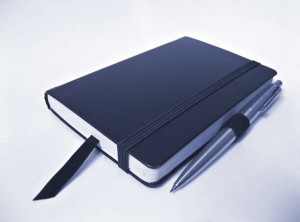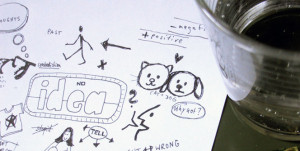 I like the idea of a journal because I write it for me, meaning I am my Target Audience—this gives my imagination a lot of free rein.
I like the idea of a journal because I write it for me, meaning I am my Target Audience—this gives my imagination a lot of free rein.
Take a look at some of poet Bernadette Mayer’s journal concepts: Dreams, food, finances, ideas, love, ideas for architects, city designs…even telephone conversations. There are six pages of journaling ideas and concepts that Bernadette lists. It is a landmine of prompts and I’m thinking of posting it in my room. You should too.
The list reads like a catalog of observations we could make while we go on with our lives—while going for work we can change that jumpy bus ride into a poem or talk about the saddest things in our lives in prose. You could have a journal for your sweetest dreams and one for your fears. There is a format designed to portray every experience in our lives.
The journal and me
I started journaling when I was a teenager. I guess it was the worst time to start as I ended up burning my diary. Teenagers don’t usually store their diaries in case they want to write a book some time in the future. After burning the diary, which didn’t have any acute observations of the world around me but was more me-centric, I abandoned the concept of the cute little diary from Archie’s with the hearts and teddy bears and the Lock.
There was a Lock. I really shouldn’t have burnt it.
The next time I started writing a diary was when I became a Mom. This journal was different as I was obsessive about scrawling down feeding times, potty frequencies, fever occurrences, doctor’s appointments, vaccination dates, but all in a very disorganized fashion. At the same time I was typing in entries. When I typed, my journals were different and when I wrote by hand they represented some other aspect of me.
Getting Past IT
“I hate what I write,” a journaling novice told me. “When I look at what I’ve written, all I see is pages and pages of rubbish, trivia, blah blah blah, and I start thinking how I could be this way. How do you get past that?” It happens when you write. I was ashamed too at some point (now don’t come looking for my diaries!).
A lot of you comes out. In the beginning, your diary could be about the things you hate the most, the people you never want to see but who keep showing up, the life you don’t want to live but are living anyway.
Even years later, when you think you are over IT, IT raises its head and you lambast IT all over again. You got to get yourself out of you before you see the rest of the world. I guess that is why people who write are very introspective at some point or the other in their lives. Once you write yourself out in your diary, a lot of room will enter your writing space—and you will start to do word dances. The free writing finally starts becoming meaningful writing. I promise you that much.
 I know this question is often met with derision from literary panels, but I think it is a relevant question to ask a writer. Writers get ideas from the world around them, but so does everyone else.
I know this question is often met with derision from literary panels, but I think it is a relevant question to ask a writer. Writers get ideas from the world around them, but so does everyone else.
 I like the idea of a journal because I write it for me, meaning I am my Target Audience—this gives my imagination a lot of free rein.
I like the idea of a journal because I write it for me, meaning I am my Target Audience—this gives my imagination a lot of free rein.